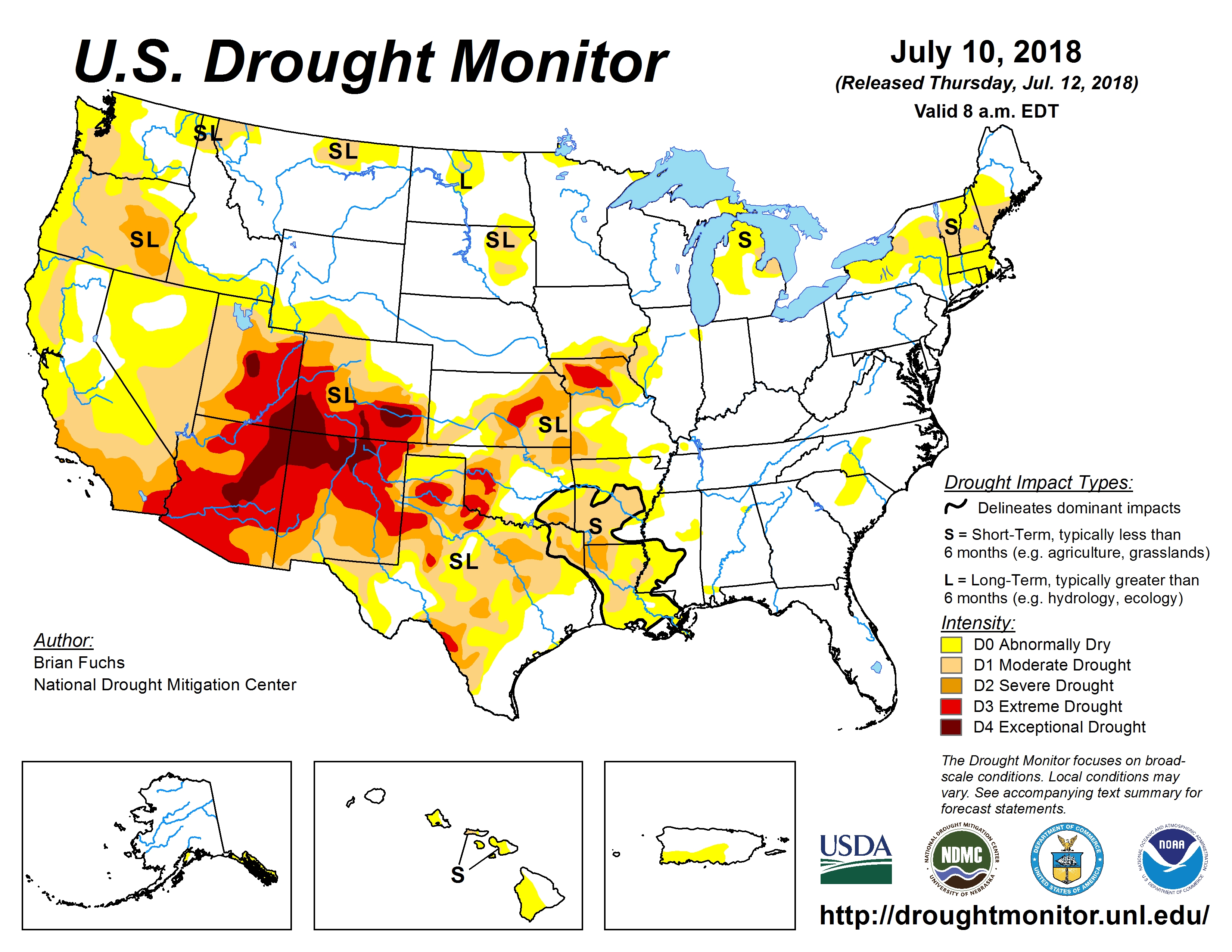With the ongoing drought plaguing Northwest Missouri farmland, producers find themselves scrambling to combat depleted water and feed sources for livestock.
Fortunately for area farmers, Nodaway County has already been approved for one drought response program and administrators at the Nodaway County Farm Service Agency (FSA) are hopeful at least one more will be approved.
Nodaway County was approved for the Emergency Conservation Program (ECP) July 6, and farmers were notified of their ability to sign up for the program July 9. County Executive Director Tim Dreier said he would be hearing back about county’s eligibility for the release of Conservation Reserve Program (CRP) land for haying and grazing by July 13.
The ECP is a livestock watering program designed to help a producer whose main source of water has dried up get a new source of water built into his/her farm. The cost-share program would cover 75 percent of the cost for the addition of a new water source.
To find out if the producer is eligible for the program, farmers will have to go into the FSA offices and let officials look at their water situation on a farm-by-farm basis. Farmers would be required to show proof that their existing water source has dried up.
The FSA would then look for the quickest, most cost-effective way to get water on the farm. In some cases, this would include tapping into rural water lines or building a well. The fix will often be something that could be used permanently but may not be cost-effective for the farmer to use once their regular water source is replenished.
“For example, hooking into rural water is something they can use, but paying for rural water to put that into an animal [enclosure] is expensive,” Dreier said. “But it’s an emergency measure that they can use until their ponds, springs or whatever their source is recharged so they don’t have to get rid of their livestock.”
It is worth noting that if the need of the farmer is satisfied before the water source is installed, the FSA will end progress on the program since the farmer no longer needs the other source of water.
While water for livestock is an important issue, feedstuffs for livestock has also been hurt by the arid weather. The potential release of CRP land for haying and grazing is what Dreier is hoping the next step in combating the drought will be.
If approved, CRP landowners can go to the FSA and attempt to sign up for the ability to graze livestock or mow for hay. Not every piece of CRP land is eligible. Eligibility will depend on the type of CRP land the farmer has.
Assuming eligibility, the farmers can put-up hay starting Monday, July 16, until Friday, August 31 and graze until September 30, as long as the grass does not get grazed too short. Requirements for the length of the grass vary depending on the type of grass. Once the grass is grazed down to a certain length, the farmers are required to take livestock off that land.
Dreier said many of the producers he has spoken to are interested mostly in the haying aspect of this program.
“Hay has been very short,” Dreier said. “We had a cool April with a couple of early snows and cool temperatures that didn’t let grass grow. We then followed that with a much warmer and dryer May than we are used to as well. Those two things didn’t allow for a lot of early grass growth so the hay crops has been really short. Supplementing that with some CRP hay will really go a long way.”
Dreier said farmers who do not qualify for these programs but are still suffering from the dry weather could contact the University of Missouri Extension office. He said that office has livestock specialists who can share how to mitigate the damage from the drought including ways to make feedstuffs and water supplies last longer.
Outside of scheduled events, the Extension also provides brochures, articles and other relevant information to help producers battle the heat.
If the drought were to continue, Dreier said Nodaway County could be eligible for more programs in the future. However, he said he hopes Mother Nature intervenes before those programs become necessary.





Facebook Comments